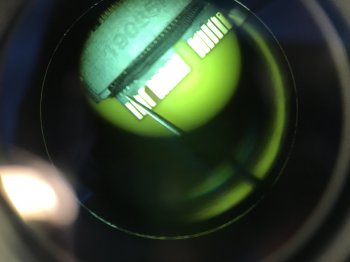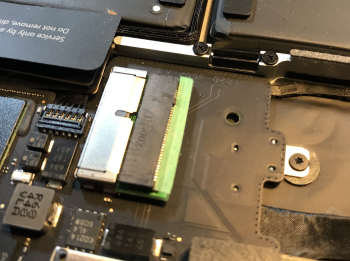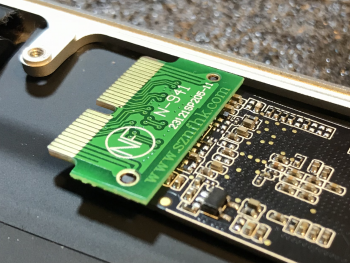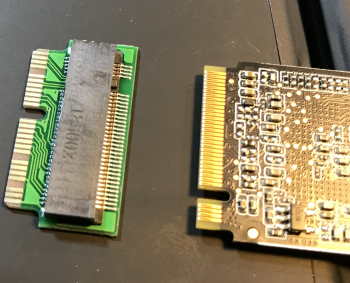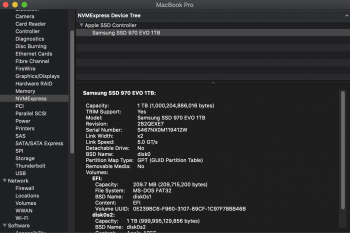I just upgraded my 13" Retina MacBook Pro, Early 2015, from the standard Apple 128 GB SSD to 1 TB Intel 660P QLC SSD (bought from a Norwegian retailer for aprox. $130, tax and shipping included. Yes, SSDs are a bit pricy here).
The replacement process went smooth with no problems. I used the small black Sintech adapter.
According to EveryMac's specifications page for the 13" MBP 2015, the original model has write speeds of 643.6 MB/s and read speeds of 1.3 GB/s. (With Blacmagic Disk Speed Test.) I forgot to do my own benchmarks before I swapped the SSD out.
The speeds with the new Intel SSD were really good! Write speeds of 1.2 GB/s and read speeds of 1.5 GB/S. An increase in write speeds of 81,7 % and read speeds of 13,6 %.

Also, I did a speed test with AmorphousDiskMark to see if there was any difference. Here are the results:

When it comes to power draw, I have done some testing with iStat Menus to monitor power consumption, and got varying results. Idle power consumption was around 0,6 W and active power consumption close to 2,5 W, just like described in post #1. However, I would like to know how the 100 GB read/write test was performed, and would love if someone could explain what power consumption values @gilles_polysoft refers to in his charts (average etc.?).
The replacement process went smooth with no problems. I used the small black Sintech adapter.
According to EveryMac's specifications page for the 13" MBP 2015, the original model has write speeds of 643.6 MB/s and read speeds of 1.3 GB/s. (With Blacmagic Disk Speed Test.) I forgot to do my own benchmarks before I swapped the SSD out.
The speeds with the new Intel SSD were really good! Write speeds of 1.2 GB/s and read speeds of 1.5 GB/S. An increase in write speeds of 81,7 % and read speeds of 13,6 %.

Also, I did a speed test with AmorphousDiskMark to see if there was any difference. Here are the results:

When it comes to power draw, I have done some testing with iStat Menus to monitor power consumption, and got varying results. Idle power consumption was around 0,6 W and active power consumption close to 2,5 W, just like described in post #1. However, I would like to know how the 100 GB read/write test was performed, and would love if someone could explain what power consumption values @gilles_polysoft refers to in his charts (average etc.?).


